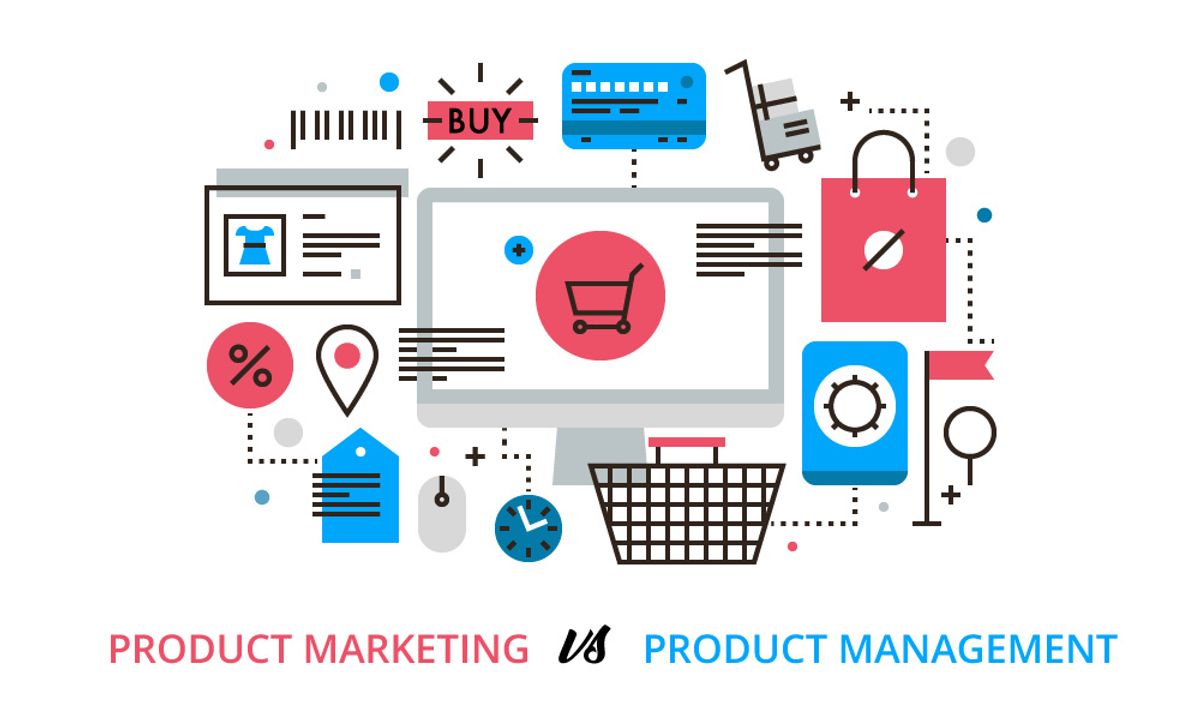I've experienced my fair share of change working in the software industry. In fact, over the last three years, I've reported to five different managers! This may sound like I'm complaining (okay, I am a little!), but in reality it's offered me the ability to understand my current role as Director of Product Management more deeply.
Prior to becoming Director of Product Management, I worked in both product marketing and product management. Spoiler alert, when it comes to product marketing vs product management - there's a lot of overlap! But there are some clear differences too. What I've learned is that these differences vary widely depending on the company (number of employees, departments, etc.).
Defining Product Marketing & Product Management
So…product marketing vs product management, what are the actual differences? Let's start off by defining each term. The Berkley Haas School of Business says "product managers (also known as PMs) are responsible for the overall success of the product."
They essentially create the product by guiding the development team throughout the entire process. This means they are in daily or weekly meetings, letting engineers and designers know what to build and when. They also define all the details about the product and then communicate this information to others.
On the other hand, once the product is built, it's the product marketer's job to work with marketing, sales, and the product team to bring it to market. But, even before the product is built, the product marketing manager (PMM) is responsible for fully understanding what customers need.
Okay now that you know the basics, let's break them down a bit more. What are the key responsibilities of a product marketer and product manager? And what's the overlap between the two roles?
Product Marketing vs Product Management: The Overlap
There is some overlap between these roles. Let's take a look at the two main overlapping responsibilities:
- Understanding your customer's needs. Both PMs and PMMs need to stay in the know with what customers are expecting of the product and the future roadmap. For example, my company recently held a customer advisory board and both the lead product marketer and product managers facilitated the session.
- Communicating product information to stakeholders. PMs and PMMs both communicate product strategy, messaging, and roadmap information to external customers and partners, as well as internal employees. For example, whenever my organization releases new features, product management oversees the external communications to customers. However, product marketing ensures it is clear and well-aligned with our company's overall product messaging. So again, both positions play an important role in communicating product information to company stakeholders.
Product Management
Now let's take a closer look at product management. Generally speaking, the product management team handles the following:
- Researching competitors and their pricing
- Defining the product roadmap, based on customer feedback
- Leading the engineering effort based on the roadmap
- Managing software license requirements
- Communicating software changes to internal stakeholders
- Communicating with customers when issues arise
So you may be wondering, what are the skills and education required for this role? You need to be a master communicator, highly organized, and detail-oriented. It's great to be skilled in project management, as you'll be communicating with multiple stakeholders and leading various product development efforts!
If you're looking for a role in software product management, it's good to know agile software development methods. It also helps to have a computer engineering background, but it's not required. Want to learn more about this position? Check out ProductSchool. You can take courses online and in-person, and their YouTube channel offers free resources.
Product Marketing
Okay, moving on to product marketing. Key responsibilities include:
- Discussing company strategy and roadmap with industry analysts
- Enabling internal stakeholders with product messaging (e.g. sales, marketing and customer service)
- Defining product pricing
- Interfacing with customers for market research (e.g. customer advisory boards)
- Understanding the competitive market and how your company fits in
- Defining the long-term product strategy
- Supporting sales and marketing in external product messaging
To excel as a product marketing manager, you need to be a master communicator, highly organized, and detail-oriented (just like in product management). It's also critical to be able to communicate cross-functionally, meaning you can collaborate with other departments.
Do these sound like things you'd be good at? If you're looking to launch a career in this field, it helps to have marketing degree, as well. Check out these free resources to learn more about marketing. You could also shadow someone in product marketing at your current company or take some online courses on Udemy, Skillcrush, Lynda.com, or OpenSesame.
So...product management vs product marketing, you now know the key differences.
Product managers are focused on building the product and working daily with the development team to deliver on the product roadmap. Product marketers are focused on then delivering that product to the market, communicating the key messages to all stakeholders.
Both product management and product marketing play a critical role in the business - the departments have to work together to ensure products remain competitive in the marketplace. Knowing and understanding them both (and how they work together) puts you way ahead of other applicants!



